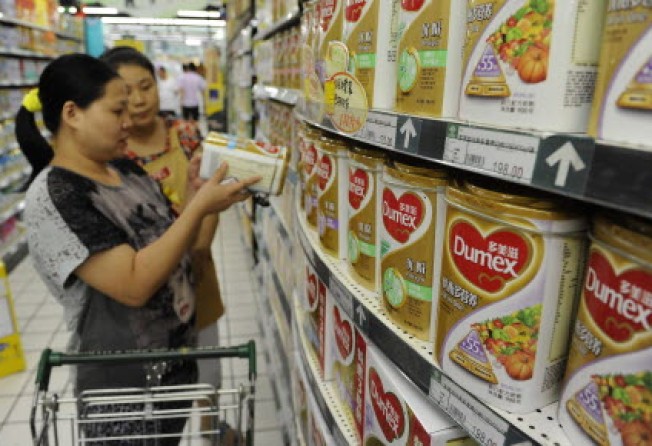Milk firm Dumex probes claims staff bribed Chinese hospitals to get newborns hooked
CCTV allegations that staff at a French milk formula manufacturer bribed doctors and nurses in Tianjin to give its products to newborns prompts investigation by company

French baby formula manufacturer Dumex promised on Monday to investigate allegations its staff bribed hospital officials in China to provide its products to newborns.
Dumex made payments to doctors and nurses at a hospital in the northeast city of Tianjin, state-run broadcaster CCTV said, citing a former employee of the company and invoices obtained by the broadcaster.
The payments, of up to 10,000 yuan (HK $12,600) each, were made so that staff would provide newborn babies with Dumex milk, CCTV said, claiming they would become dependent on the company’s products.
Dumex, a subsidiary of Paris-based conglomerate Danone, said in a statement it was “extremely shocked” at the allegations and would investigate.
“Dumex China pays great attention to the CCTV report on the promotion of products in hospitals in Tianjin. We will launch an investigation into this matter immediately,” the statement said.
The CCTV allegations come after the authorities in the mainland launched sweeping probes into multinational companies in recent months.
Dumex was one of six milk formula manufacturers handed heavy fines by China’s authorities for price-fixing in August, when it was ordered to pay 172 million yuan.
British pharmaceutical giant GlaxoSmithKline has been hit by a corruption investigation which has seen 20 people arrested since the beginning of July.
China has one of the world’s lowest breastfeeding rates, which experts say is due to misconceptions about health and aggressive marketing that ‘brainwashes’ mothers.
Increasingly competitive baby-formula producing companies have targeted markets in poorer countries in recent years. Campaigners have dogged Nestle for decades, claiming the company markets its products to women who would be better off breastfeeding.
Both Unicef and the World Health Organisation recommend breastfeeding from birth to six months of age, and continued breastfeeding plus nutritious complementary foods thereafter, up to two years or beyond.